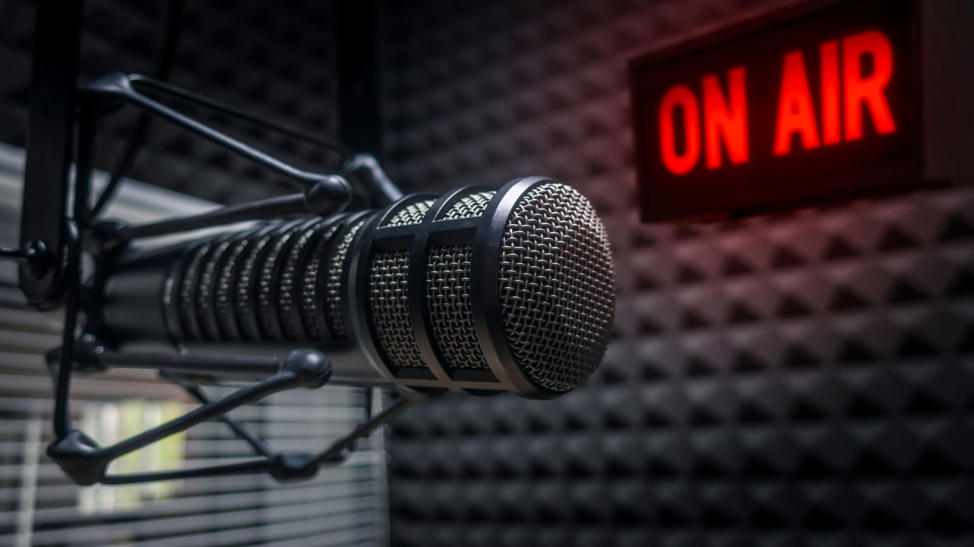There are various types of content marketing. You and other creators have a multitude of options, including blogs, social network updates, images, videos, slide decks, and more. Even podcasting can be included in this blend.
A podcast is an on-demand discussion radio. This implies that viewers can check in whenever they want and do not have to turn up and check in on it live. Podcast listeners have complete control over what they choose to hear. However, finding proper listeners, rather than a majority of the random public is a podcaster’s goal. This is what makes podcasting fun. One more thing important for a podcaster is having an internet connection that is always on and keeps them connected to the internet and the online world, the socials, and what not. One recommendation from us, is to get a connection with Mediacom, which you can contact through Mediacom customer service providing a quality connection and real-time internet speed that you need while podcasting. Read forward and learn about podcasting –and how it is a useful upskill to earn money in the present day too.
Who Can Create a Podcast[HM1] ?
To produce your podcast, you need a few items. These are widely available to the vast majority of listeners. If you own internet access, which is a fact if you are reading this, you are almost there. There are no barriers to podcasting; we will talk more about this starting later but the basic point is that you can create your own without anyone’s meddling.
Is it Costly?
For new podcasters, this can be one of the scariest aspects. Is the cost going to be high? The good news is that you can invest very little or as much on podcasting as you’d like. However, you don’t necessarily need to invest a lot to create a fantastic podcast. Your content, which you don’t truly purchase with money, is what matters the most. However, if you want to make that information sound more credible and offer it to your viewers in a fair way, you can invest a little money in some tools.
What’s the time commitment?
There are several varieties of variables here once more. It varies depending on the type of podcast you host, how much research goes into each session, and how regularly you release new episodes.
You will need to spend some time on your podcast; there is no way around that. Even more so if you wish it to be a success. However, there are techniques to better the efficiency of your podcasting process.
What Is the Most Basic Step to Start?
You may jump right in and begin producing your podcast show if you have a concept for one. The initial steps for new podcasters are listed below.
- Pick a subject:
A theme should be the base of your podcast. It might be anything, from a major worldwide issue like climatic changes to the most specialized topic yet.
Your topic will be something you are passionate about if you are podcasting as a leisure or mental workout. On the other side, if you want your presentation to promote your company, the subject will likely relate to that.
- Choose a Specific Audience:
A subject is a good place to start, but for whom? Although you might respond, “Well, definitely, for persons interested in that area,” this is insufficient.
The days of starting a podcast for “those who want to be fit” or “those who like workouts” are long gone.
- Select a Format:
There aren’t any set guidelines for podcast formats, but you’ll eventually find one that works best for you. A consistent co-host may provide chemistry and dynamic to the show. Instead, a different guest might provide new skills and information to each episode. You don’t have to keep to one format; you can use a variety of them.
While one article may mention how interview shows are popular, but that doesn’t mean you have to do one. You can do a solo one and co-host it with other podcasters which is starting to be a famous option these days. One big benefit of doing interviews is that they help a ton with getting new listeners.
- Select Your Software:
In reality, hosting a podcast requires very little software. The majority of the audio editor also serves as recording software.
Using the tool Audacity, you may record and modify your podcast. Audacity is safe and free, but as a transfer, it can be challenging for beginners to use and may require some time.
- Improve the sound quality:
The importance of high-quality audio cannot be overstated. Your podcast will suffer even if it has a carefully crafted theme and material if it has poor audio quality.
We’ve already talked about the hardware and software that go into making your music, and these elements are quite important.
- Record and edit your first podcast episode:
A big achievement is to tape your debut episode. Make sure you have at least a general idea of what you wish to discuss before you begin. Use the 3-click procedure if you make any blunders that you’ll wish to erase later.
- Online Publishing & Posting:
You will publish your episode to your hosting site after it is complete. Keep in mind that all of your new shows will appear on podcast sites once you publish once to them. These include well-known platforms like Spotify.
Before you upload the first episode your podcast, be sure to create social media accounts for your new creation! This will help you with promotion and distribution once everything is live.
- Publicize Your podcast
Building your viewership is critically dependent on podcast promotion. A significant portion of it comes from the actual content, such as a strong podcast title, summary, chapter titles, and program comments. But the popularity of podcasts also has other facets.
Conclusion: You must have everything that you require to make podcasts if you have completed all of these instructions! Here’s wishing you success as you make your first journey into the world of content production.

Natalia is a Rap and Hip Hop enthusiast. After graduating from The New School of New York’s Public Relations Program and taking a course in Journalism at Michigan State University, she decided to dedicate her life to the music publishing business and to the discovery of new talent. She helps new artists gain exposure to the masses via online marketing and publications.








